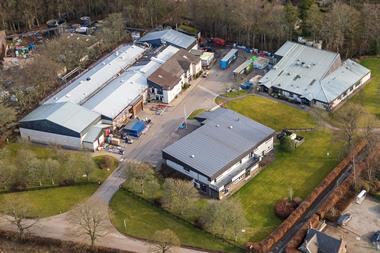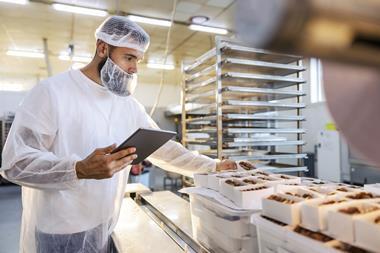With social sustainability high on the agenda for buyers, opportunities are opening up for the South African raisin industry to showcase its valuable transformation work.
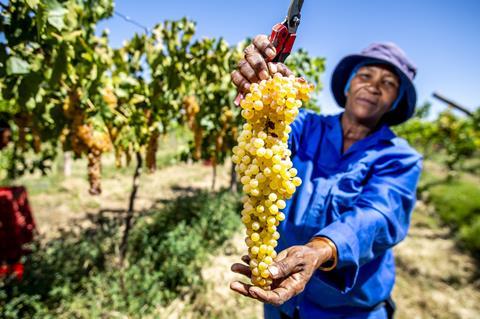
Provenance and transparency have never been higher up the agenda for Britain’s baking industry, and that means sourcing ingredients that have not only been produced sustainably, but with fair treatment to both staff and local communities.
As consumers increasingly seek out ‘healthy indulgence’ foods that tick boxes for both health and taste, raisins have come to the fore – both as a snack and a versatile ingredient. According to figures from Tridge, the UK is the world’s fourth-largest importer of raisins, behind only the US, Germany and the Netherlands, and bought in a sizeable US$662m (£503m) of the dried grapes in 2023, representing a 0.3% rise on the year before.
However, over the past 12 months, global supply has been constricted, with market leader Turkey’s output down a third due to heavy rainfall, and key suppliers the US and Iran also suffering weather-hit seasons. That has meant new opportunities for South Africa, whose exports have more than doubled in the past decade from just 40,000 tonnes (t) to a predicted 96,000t this year as growers have invested in the crop and upped production.
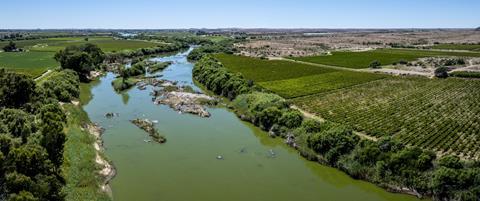
South African raisins are naturally sundried and have near-zero residues thanks to the favourable climatic conditions of the Orange River region, where there is minimal need for chemical inputs. Allied to their environmental credentials is the lesser-told story of what’s happening on a human level, where a concerted focus on transformation projects is bringing more black and female farmers into the industry to take advantage of those new market opportunities.
Transforming producers’ lives
South Africa has a well-known and difficult history when it comes to racial inequality and, as a result, one of the biggest focus areas has been on transformation initiatives to support previously disadvantaged black farmers.
Industry body Raisins SA has taken the lead on levelling the playing field, ringfencing 20% of all its levy income to be spent on transformation work. Some 60% of that goes on enterprise development, with 18% on skills development, 17% on management capacity and 5% on social, economic and softer issues.
While a fifth of the entire budget sounds like a lot of money, as a relatively small industry in agricultural terms, in reality the levy brings in no more than R2m-R4m, which equates to around £85,000-£170,000. That means Raisins SA’s transformation manager Simoné Oliphant has to get creative to maximise the impact, and she has focused her attention on working together with a range of other interested parties to raise substantially more cash for her various projects. “Funding is never enough for transformation because there’s so much work to do,” she explains. “So, what is critical in my portfolio is partnerships. For the last three years I very aggressively built partnerships to help secure further funding.”
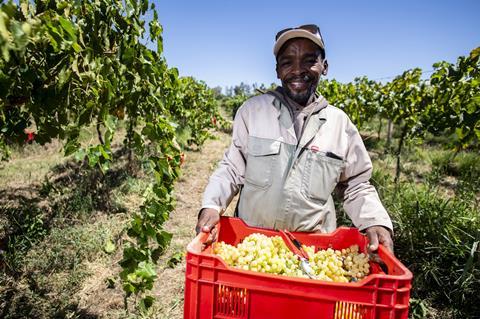
Oliphant works with four big commercial and two developmental banks on a range of initiatives. Nedbank, for example, has an incubator programme for farmers, FNB supports the sector on major financial transactions, and the IDC (Industrial Development Corporation of South Africa) helps with grant funding for project implementation, as well as interest-free debt funding. A sign of how successful Oliphant has been, the total project value she has managed to raise is an impressive R100m (£4.3m) across the next five years.
There are countless more examples of the social good that Raisins SA is doing: a special project aims to bring more women into farming and upskill them into senior positions; a graduate programme has trained and placed dozens of previously disadvantaged students across the industry; and an expedition to a Spanish trade show is exposing growers to new market access opportunities and global commerce.
Supporting skills development
Raisins SA is currently running around a dozen projects in enterprise development, as well as a range of schemes in skills development. Skills training is supported by the recently established Vine Academy – an innovative educational institution in the Northern Cape that teaches both incoming and existing farmers about a range of practical topics from soil science, irrigation, pruning and pest and disease management to planning, the economics of viticulture and understanding finance. In tandem, a Model Farm enables students to put their learnings into practice and researchers to trial new varieties, technologies and production methods.
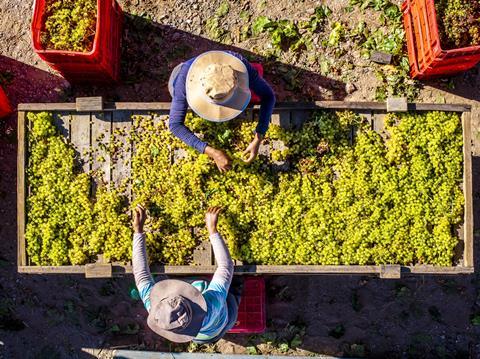
Access to finance is an important part of helping new producers get established, and there’s a revolving credit facility available for previously disadvantaged farmers, as well as practical support with harvest and pruning skills. There’s further financial support for farm development, and in addition emerging black farmers are assisted in commercialising their businesses, which includes training as well as developing business plans.
”Projects don’t have a choice but to succeed – it’s not like with commercial farmers who can take a plot of land and trial things”
Simoné Oliphant, transformation manager, Raisins SA
The latter point is crucial, and Oliphant stresses that only where there’s a viable path to commercial success will a project be approved. “Projects don’t have a choice but to succeed – it’s not like with commercial farmers who can take a plot of land and trial things,” she explains. “When you work with previously disadvantaged individuals you don’t get to keep re-trying. We do a lot of monitoring and evaluation, and every project has its set outcomes, as once you get a funding opportunity you need to make sure it’s successful as it’s these people’s livelihoods.”
The South African raisin industry has come a long way in its transformation journey in just the last four years, tripling its spend on projects and gaining a reputation that has caught wider attention. “The industry is now being approached to take the lead on projects as opposed to four years back when we had to beg people to support us,” Oliphant says. “And we don’t just do transformation because we have to. We enjoy doing it – we love seeing someone start off with nothing and, three to four years later, they’re building a new farmhouse and using the latest technology. It’s quite an amazing journey.”
The industry is taking these actions because it is the right thing to do. But it also helps those buyers considering new sources, amid the shakeup of global supply, who can rest assured that what’s happening at the South African farmgate would be warmly received by consumers.
Find out more on the Raisins SA website by clicking here

























